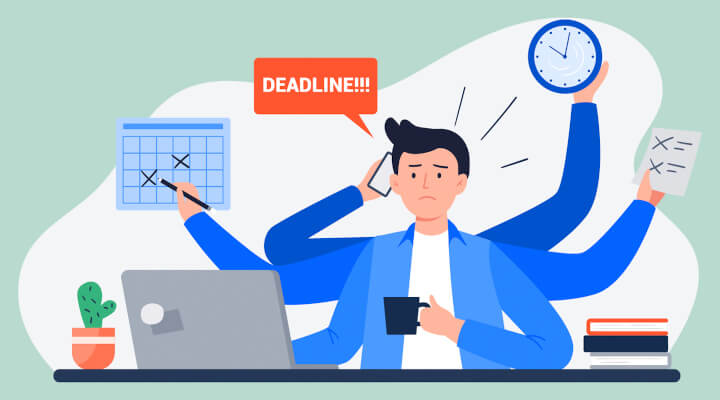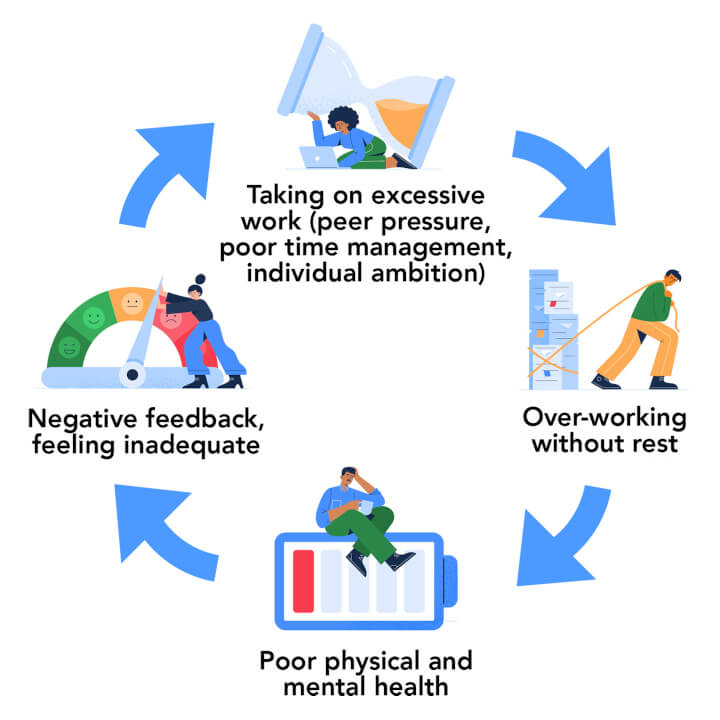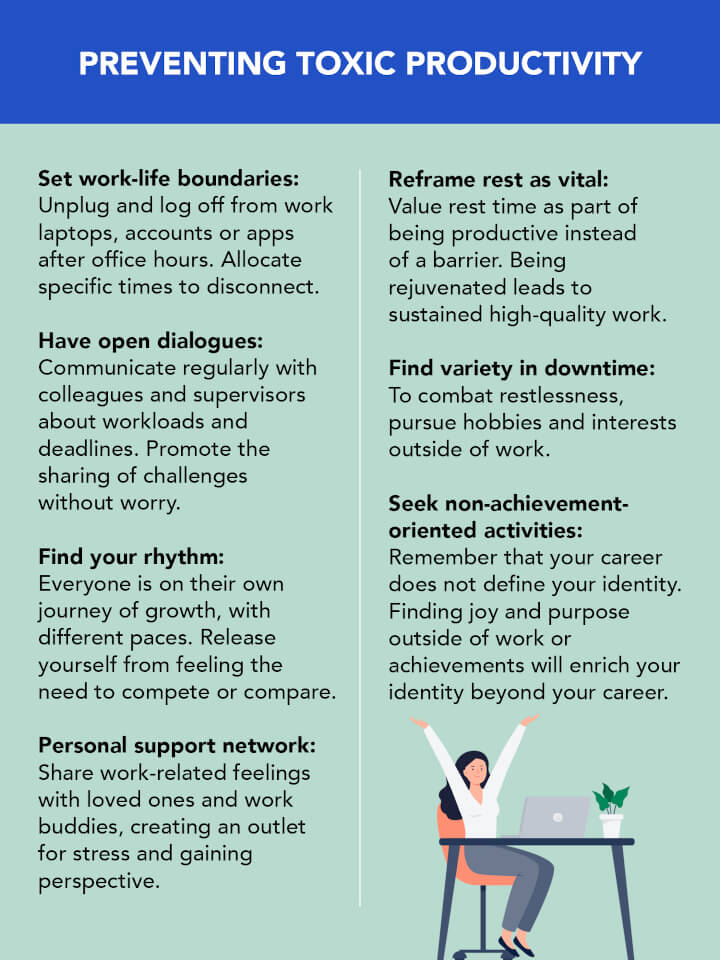When The Quest for Productivity Turns Harmful

Imagine you have an empty block of time. Perhaps a meeting with friends was cancelled, or you completed a task ahead of schedule.
What would you do with this free time? For some, the answer would be to “do nothing” – perhaps not literally, but unstructured activities that allow for physical and mental rest.
But for others, “doing nothing” can be a huge challenge. This difficulty might be a sign of toxic productivity.
Defining Toxic Productivity
While it’s normal to work harder or rest less during critical work periods, the line is crossed when there is a chronic need to remain productive at all times. This is often coupled with the inability to rest or switch to non-work-related activities without feeling guilty.
A person caught in toxic productivity may only find value in their career, and in extreme cases, allow their identity to be defined by their career. This may extend beyond one’s professional work. Without a constant stream of things to accomplish, a workaholic finds themselves adrift and feels the need to seek more tasks or projects to obsess with.
Breaking The Cycle

Beyond a self-imposed need to fill their time with tasks, peer pressure can be a contributor. For example, younger workers surrounded by peers collecting internships in university and juggling side hustles with day jobs may pick up this mindset. Some youths have begun to use the term “hustle culture” to describe – and even celebrate – the idea of working or being productive at all times.
Poor time management can lead to toxic productivity, especially in hybrid work settings. When the line between work and rest is blurred, a worker might be glued to the home desk well into the late evening, ignoring other commitments. Such undefined or extended work hours may, over time, turn into a bad habit.
Those with certain life ambitions may also be more prone to toxic productivity. For the sake of long-term goals such as early retirement, financial independence or swifter promotions, some professionals take on an extreme work ethic.
But are the effects of toxic productivity worth it?
Neglecting rest is counter-productive. It can lead to declining physical and mental health, resulting in exhaustion and burnout. When this occurs, work quality decreases. This may trigger negative feedback, potentially affecting one’s self-esteem.
To make up for lost confidence, one might resort to taking on even more work, creating a vicious cycle where a person feels like they’re never doing enough.

- POSTED ON
Sep 14, 2023
- TEXT BY
Daniel Yee
- ILLUSTRATION BY
Mushroomhead









